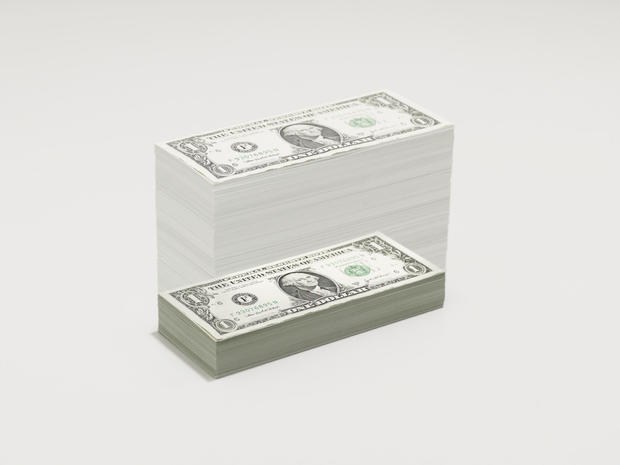Savings accounts vs. CDs — which do the experts prefer?
Although high inflation and high interest rates are making many aspects of life less affordable, many people are able to benefit in this environment due to earning high interest on their savings. The more you can save, the more you can earn. And, one way to take advantage of high interest rates is to put money into a high-yield savings account. Another option is to open a certificate of deposit (CD) account.
In general, savings accounts have more flexibility than CDs, as you can add and withdraw money on more of an ongoing basis, although there are still generally more restrictions compared to a checking account. Meanwhile, CDs typically pay slightly higher interest rates than savings accounts. And both can provide substantially higher interest income compared to what you'd earn if you kept everything in your checking account.
Some people even choose to utilize both savings accounts and CDs. However, there are some reasons why you might prefer over the other, depending on factors like your financial goals and discipline.
Explore your top savings options here.
Savings accounts vs. CDs — which do the experts prefer?
Although savings accounts typically do not have fixed rates, meaning interest rates can change at any time, their flexibility often makes them appealing.
"Savings accounts offer greater liquidity, making them ideal for emergency funds or very short-term objectives," says Bryan Cannon, CEO and chief portfolio strategist at Cannon Advisors.
Because of this flexibility, savings accounts typically pay lower interest rates than CDs, but the gap is often small, especially when comparing the best savings account rates vs. the best CD rates.
Currently, the best high-yield savings accounts pay somewhere in the ballpark of 4.5% to 5% annual percentage yield (APY). In comparison, the best 1-year CD rates are around 5.5% to 6% APY. But with CDs, you need to keep your money locked up for the whole term in order to earn that full interest rate, as opposed to being able to move money in and out like in a savings account.
"In my opinion, for most people, the approximate additional 1% in interest is not enough to make up for the lack of liquidity when considering a CD versus a high-yield savings account," says Chris Urban, CFP, founder at Discovery Wealth Planning.
Especially if you think you might need to access your savings in the near future, then a savings account could help you avoid CD early withdrawal penalties and give you more peace of mind.
"I prefer the daily liquidity of online savings accounts vs CDs for money someone may need to access in the next 6-24 months," says Christopher Lazzaro, founder and president, Plan For It Financial, LLC.
In some cases, the difference between CDs and savings accounts is only around 0.25-0.50% percent. Under those circumstances, "most CDs come with too many contingencies, penalties, and other restrictions to justify the hassle," says Lazzaro.
While savings accounts generally offer more liquidity, the higher yields on CDs could be worth it to some savers and investors, especially if you want a guaranteed return.
Even if savings accounts and long-term CDs offer similar rates right now, for example, it's possible that savings account rates will drop in the future, thereby making CDs more valuable.
Plus, locking your money into a CD could be helpful if you struggle to stay on track with savings goals.
"CDs typically offer higher interest rates, making them attractive for longer-term savings goals. With fixed rates and penalties for early withdrawals, they provide stability and discourage impulsive spending," says Cannon.
If the gap between CDs and savings accounts got substantially higher, that could encourage more people to choose CDs.
"I would probably need to see a yield advantage of at least 2% before I would consider recommending CDs over high-yield savings accounts," says Urban.
Lazzaro agrees that the spread would have to be 2% or more to justify CDs over savings accounts, but "I don't think the banks would allow that to happen," he says.
Find out how today's top savings rates could benefit you here.
Using both savings accounts and CDs
While both savings accounts and CDs have their pros and cons, you don't have to always choose one over the other. It's possible to put some money in both.
"The choice depends on your balance between liquidity and long-term savings, often leading individuals to utilize a bucket approach," says Cannon. In one bucket could be savings accounts for very short-term expenses, and in another could be CDs for anticipated mid-range expenses, he explains.
Some people might also use CDs as fixed-income investments while stocking away cash in savings accounts.
"For a very conservative investor, I could see utilizing both," says Lazzaro. A savings account could be used for an emergency fund/savings, while a CD ladder could be used in place of a bond fund as part of an investment portfolio, he says.
The bottom line
Ultimately, these decisions depend on what you're trying to accomplish and what your risk tolerance looks like. If you do decide to put money into a savings account or CD, the process is often easy. With many financial institutions, you can quickly open either type of account online, which generally just involves filling in some information about yourself and transferring funds into the new account once approved.




